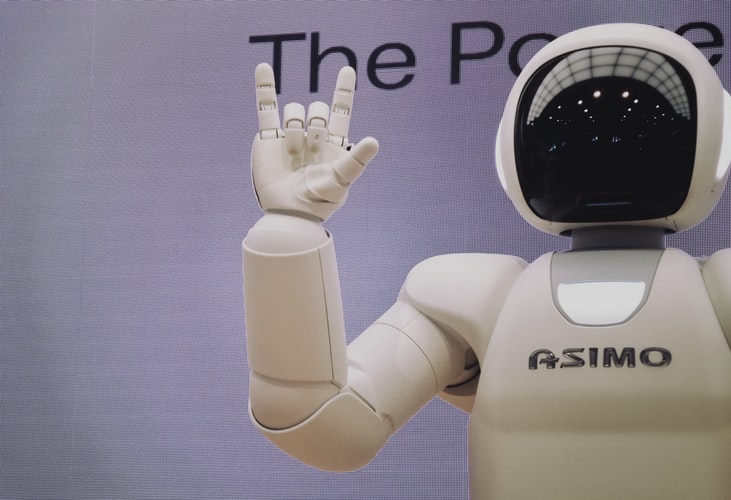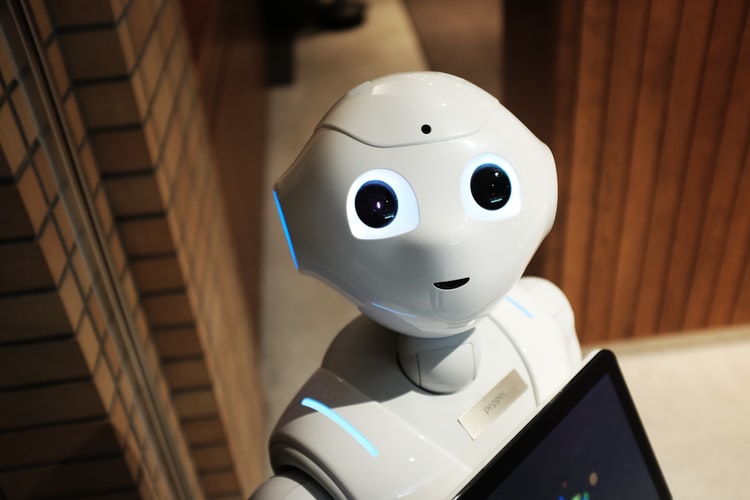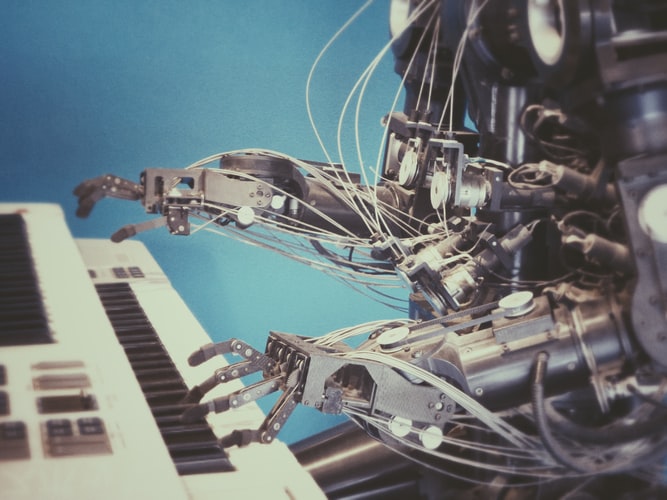With a nationwide lockdown now in place due to COVID-19, many might understandably seek escapism from the news at times, watching online movies in their spare time, perhaps tuning into a hit series like Westworld; one of a number of science fiction shows that have reflected how advances in AI and robotics have captured public attention.

While shows like these are thought-provoking, they don’t tend to delve into the immediate social concerns regarding AI and robotics, such as whether they can truly operate in roles where sensitivity toward mental and physical health difficulties is intrinsic, or where protocols make these fundamental. This is particularly pertinent in the light of tragic accidents that have occurred, notably the ‘catalogue of errors’ that lead to the death of Stephen Pettitt in 2015, the first UK patient to undergo robotic heart surgery.
With little to show these concerns being addressed, what’s inevitably worrying is when robotics is presented as a solution to the UK’s NHS and social care sectors, despite underfunding and staff shortages being highlighted as the cause of its crisis.
The UK government’s intentions to move to AI use in the UK at the expense of recruiting migrants, was spotlighted last October when it announced £34 million of investment in developing AI and assistive robots to ‘revolutionise’ the underfunded care system.
This February, the government announced the end of ‘Free Movement’ for December 2020 and outlined this plan to move towards ‘automation’ and away from overseas recruitment. However, the plan doesn’t account for position care workers, who will fail to meet the 70 points needed for a Tier 2 General Work Visa due to their lower salary levels. The result may leave the sector with a possible ‘black hole’ of almost half a million care workers, according to the GMB.

The automation proposals are clearly a bid to substitute integral migrant staff, yet the problem remains that AI isn’t developed enough to work on its own in achieving this, let alone be rolled out across care homes and hospitals in just short of nine months’ time.
Channel 4’s hit-series Humans depicted a speculative future with robots replacing humans in various jobs, including NHS carers. While entertaining, the sci-fi show reflected what robots greatly lack – decision-making where human intuition, judgement and altruism are vitally involved. Indeed, ‘care robots’ still cannot empathetically attend to the largely unpredictable nature of the job and there is growing evidence that the use of algorithms, such as ones used by Whitehall to scan visa applications, can absorb human prejudices. When systems become corrupt with biases against people based on their nationality, skin colour or gender, new concerns are borne regarding patient safety and the standards of care they may receive at the hands of such humanoids.

However, the world is living through an unprecedented era. In light of a multitude of ‘care robots’ and technologies coming to the aid of doctors and nurses around the globe, remarkably the COVID-19 crisis might actually be propelling the case for AI in the UK’s healthcare sector after all.
Although there are still concerns around ‘dystopian’ surveillance solutions utilised by police forces around the world to restrict people’s civil liberties, in the most part, technology has helped to reduce the spread of Coronavirus – and minimise the death toll.
Telehealth services over the phone, robo-disinfection and tracking apps seemed limited to the realm of sci-fi and cyberpunk fiction, until very recently. Now, such measures are becoming standardised in protecting public health. Countries such as China, South Korea, Israel and Singapore have all reduced the spread of infection by relying on technology.

China has further been seeing success through devices such as infrared thermometer guns, and the pandemic there has expedited greatly, through the usage of robots and drones used for disinfection and distribution of food and medicine. Given that robots can’t contract the virus, it would be foreseeable and welcome to see these technologies assisting healthcare in the near future.
Yet even before the global epidemic, Japan has been at the forefront of AI development, namely in the care robots Pepper and Paro the Seal. For several years, Japan has been finding solutions to its burgeoning retired population and a shortage of care workers, and has found great success in its robots that have proven to reduce loneliness, depression and comfort those with dementia. These robots further allow human staff more time with their patients, whilst the humanoid appropriations fulfil all the mundane tasks.
Sci-fi novels have often explored themes such as ‘the singularity’ and the arrival of ‘sentient’ robots, and as yet, it remains an interesting speculative vision of a distant future. However, it is evident that there is room for AI to assist in the UK healthcare sector in a multitude of ways – if only the Government sought it as a way to support, rather than replace, the hard work of migrant staff.
This article has been written by Raoul Walawalker who is a content writer for the Immigration Advice Service; an organisation of UK and Ireland immigration lawyers that is currently offering free legal advice to all NHS staff amid the Coronavirus pandemic.


